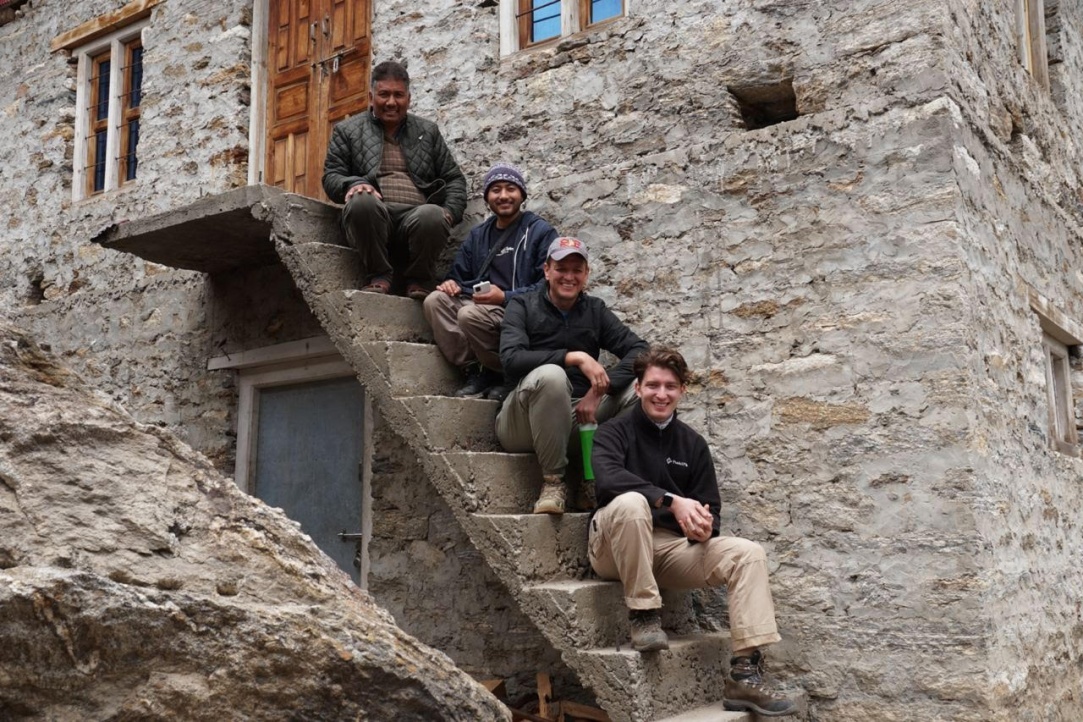
Designing an Accurate Reading Skills Test: Why Parallel Texts are Important in Dyslexia Diagnosis
Researchers from the HSE Centre for Language and Brain have developed a tool for accurately assessing reading skills in adults with reading impairments. It can be used, for instance, before and after sessions with a language therapist. The tool includes two texts that differ in content but are equal in complexity: participants were observed to read them at the same speed, make a similar number of errors, and understand the content to the same degree. Such parallel texts will enable more accurate diagnosis of dyslexia and better monitoring of the effectiveness of interventions aimed at addressing it. The paper has been published in Educational Studies.

Applications to Participate in April International Academic Conference Now Open
HSE University is now accepting proposals to present academic reports at the XXVI April International Academic Conference named after Evgeny Yasin. Applications can be submitted until December 16, 2025. The conference events will take place mainly on-site in Moscow from April 14 to 17, 2026.

'We Explore Areas Where Much Remains Unknown'
Computational methods for analysing ancient and modern genomes make it possible to study the formation of genetic diversity in populations, reconstruct their history of mixing and migration, and trace the development of environmental adaptations. The HSE International Laboratory of Statistical and Computational Genomics applies mathematical methods and genetic data to address a wide range of issues across fields such as anthropology, epidemiology, and criminology. The HSE News Service spoke with the laboratory head, Vladimir Shchur, about its work.
A Space for Economic Experimentation: LEEF Organises Workshop for Early-Career Researchers
In early September 2025, the renewed Laboratory for Experimental Economics and Finance (LEEF) held its first workshop for early-career researchers. Its main distinguishing feature was that every presentation was based on the results of laboratory economic experiments. In particular, the speakers discussed what people consider a fair deal, how best to motivate employees, and how genes influence the willingness to cooperate and help others. All interested students and postgraduates were invited to collaborate with the laboratory.

Internal Clock: How Heart Rate and Emotions Shape Our Perception of Time
Our perception of time depends on heart rate—this is the conclusion reached by neuroscientists at HSE University. In their experiment, volunteers watched short videos designed to evoke specific emotions and estimated each video's duration, while researchers recorded their heart activity using ECG. The study found that the slower a participant's heart rate, the shorter they perceived the video to be—especially when watching unpleasant content. The study has been published in Frontiers in Psychology.

Environmental Regulation in Russia and India
In Schola’s latest instalment showcasing the winners of the International Academic Cooperation of HSE University competition, Aleksei Sorbale speaks about the project ‘Regional and Inter-Regional Associations in Norm-Building and Norm-Control in the Area of Environmental Regulation in Russia and India,’ carried out jointly with a research team from India’s University of Petroleum and Energy Studies (UPES).

Generation Z's Digital Revolt: HSE Examines a Million Messages from Nepali Social Media
In September 2025, young people in Nepal took to the streets, armed not with party slogans but with online chats. Researchers at HSE analysed a million messages on a Discord server to understand the mechanics of youth protest. Experts discussed why the protesters identified themselves as Generation Z and what lessons can be drawn from this experience.

Scientists Identify Personality Traits That Help Schoolchildren Succeed Academically
Economists from HSE University and the Southern Federal University have found that personality traits such as conscientiousness and open-mindedness help schoolchildren improve their academic performance. The study, conducted across seven countries, was the first large-scale international analysis of the impact of character traits on the academic achievement of 10 and 15-year-olds. The findings have been published in the International Journal of Educational Research.

HSE Explores the Needs of Deaf People
World Deaf Day is traditionally celebrated on the last Sunday of September. This year, the HSE Faculty of Social Sciences joined the celebration and, together with the Moscow branch of the All-Russian Society of the Deaf (VOG Moscow), launched a study of the needs of hearing-impaired Moscow residents in terms of social services and accessible environments.
.jpg)
Intellectual Capital in the Face of Shocks: Russia and Iran Explore Internationalisation
In today's issue of Schola, Mariya Molodchik, Senior Research Fellow at the International Laboratory of Intangible-Driven Economy and Professor at the School of Economics and Finance at HSE University’s Campus in Perm, discusses a joint project with Iran University of Science and Technology, titled 'Internationalization of Companies from Developing Countries: The Role of Intellectual Resources in Response to Exogenous Shocks.'

